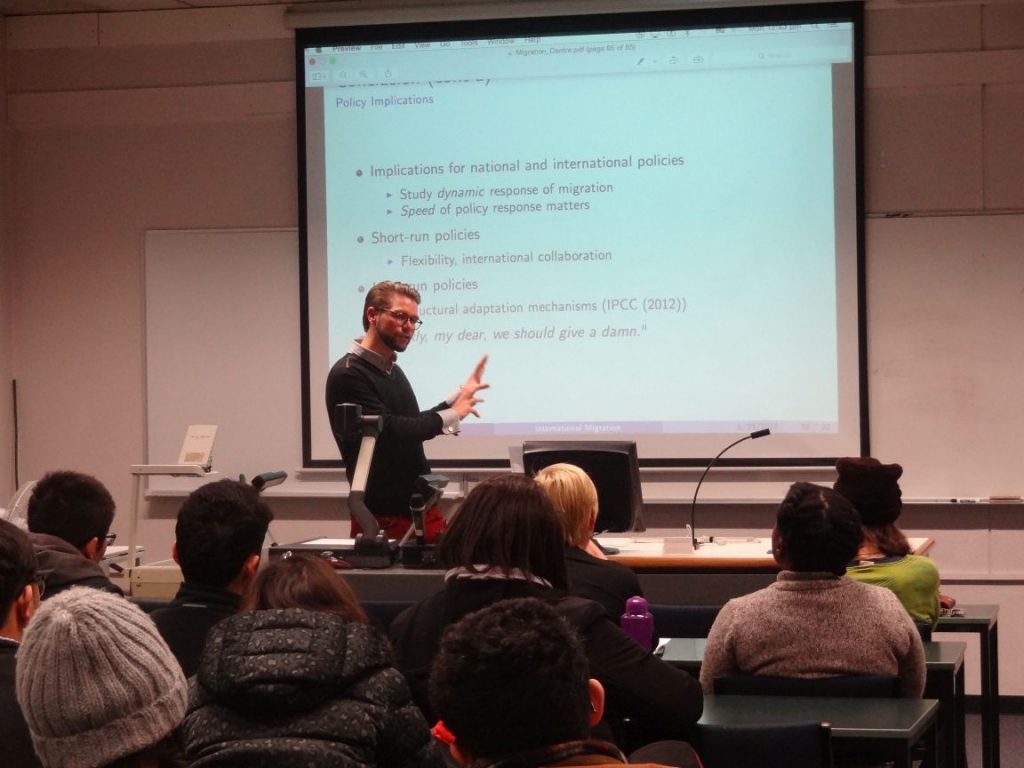On 29 May 2017, Economics lecturer Dr Dennis Wesselbaum spoke about his recent research examining the drivers of international migration, with a particular focus on the climate. His presentation showcased findings from a rich dataset from 16 destinations (including New Zealand, Australia, the US, UK, Germany and France) and 198 countries of origin between the years 1980 and 2014.
What did the data reveal about the drivers of migration? While acknowledging the effect of factors such as wage differentials, migration cost, and political freedom, Dennis emphasised the importance of climate change, including rising temperatures and weather-related disasters such as heatwaves, droughts, and storms.
With an increase in temperatures since 1980, total weather disasters have tripled, with countries also experiencing more frequent disasters. Increased temperatures not only reduce crop yields but make water and resources scarce and could lead to increased civil unrest. In this context, migration can be understood as an adaptation strategy to climate change.
Further, the study shows that the response of migration over time is very different across varied driving forces. This has important policy implications so far neglected in the policy and public discourse.
A robust discussion followed Dennis’ presentation, including questions about his rational choice model when migration narratives often show ‘messy’ decision making, the importance of cultural networks for migrants, and why, despite a high temperature, so many move to Australia.


